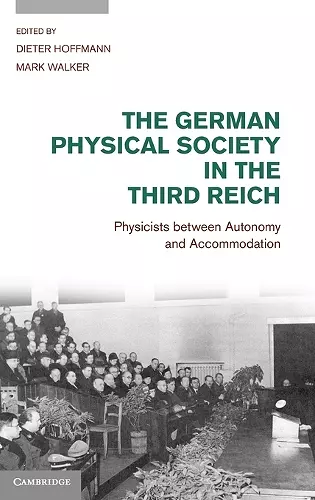The German Physical Society in the Third Reich
Physicists between Autonomy and Accommodation
Ann M Hentschel translator Mark Walker editor Dieter Hoffmann editor
Format:Hardback
Publisher:Cambridge University Press
Published:5th Dec '11
Currently unavailable, and unfortunately no date known when it will be back

This book details the effects of the Nazi regime on the German Physical Society.
As Hitler rose to power, the German Physical Society included prominent Jewish scientists like Albert Einstein, who lost their jobs and the Society lost them as members. The Society gradually accommodated itself to Nazi policies, including placing physics in the service of the war effort.This is a history of one of the oldest and most important scientific societies, the German Physical Society, during the Nazi regime and immediate postwar period. When Hitler was appointed chancellor of Germany in 1933, the Physical Society included prominent Jewish scientists as members, including Fritz Haber and Albert Einstein. As Jewish scientists lost their jobs and emigrated, the Society gradually lost members. In 1938, under pressure from the Nazi Ministry of Science, Education and Culture, the Society forced out the last of its Jewish colleagues. This action was just the most prominent example of the tension between accommodation and autonomy that characterized the challenges facing physicists in the Society. They strove to retain as much autonomy as possible, but tried to achieve this by accommodating themselves to Nazi policies, which culminated in the campaign by the Society's president to place physics in the service of the war effort.
'This fine volume explores in detail for the first time in English the role of the German Physical Society from the Nazi takeover of power in 1933 into the early postwar years, and includes comparisons with chemical and mathematical societies. The book is an important contribution to the ongoing discussion of the possibility as well as the costs of the relative autonomy of science in dictatorships, and also to our understanding of the institutional and cultural reconstruction of the sciences in West Germany after 1945.' Mitchell G. Ash, University of Vienna
ISBN: 9781107006843
Dimensions: 241mm x 164mm x 37mm
Weight: 810g
482 pages